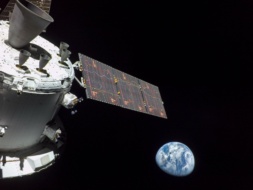On Sunday, Payload CEO Mo Islam hosted a SXSW panel—“Space Force: More than a Meme”—with a decorated bench of panelists:
- Maj. Gen. Kim Crider (Ret.), head of Deloitte’s government and public services unit’s AI practice. Crider is also former CTO of USSF.
- Eric Fanning, CEO of the Aerospace Industries Association and 22nd secretary of the US Army.
- Dr. Bill Conley, SVP and CTO of Mercury Systems, formerly director of electronic warfare for the secretary of defense.
Here’s what the panelists had to say…
- On building an agency from scratch: “Space Force can really think very differently about who they appeal to and how they build their force,” said Fanning, adding that the newly created Space Force is “a great place to experiment.”
- On connecting with industry: “It’s a different kind of organization,” said Crider. “Space Force can’t do what it does without its industry partners.”
- On navigating current and potential conflicts: “Space is a global domain and there are global partners around the world that want to be able to use space, access space, and leverage space,” said Crider. When asked about Russia’s invasion of Ukraine, she said the branch is “just following the guidance it has been given” so far.
Payload’s takeaway: The USSF is still new. It needs time to develop a unique culture, and to convey to Americans why protecting US assets in space is so important. As the branch expands, partnerships with commercial space players will be vital. Panelists emphasized the need for a more streamlined procurement process to encourage those partnerships.




